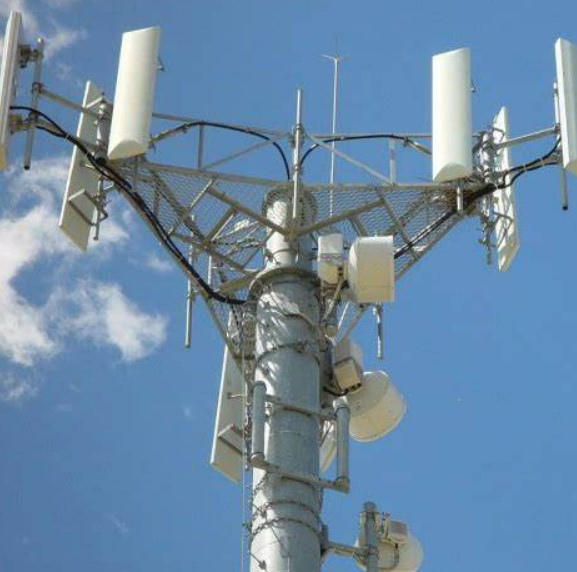GSM antennas play a crucial role in ensuring reliable mobile communication. These antennas transmit and receive signals between mobile devices and base stations, enabling seamless connectivity. Choosing the right GSM antenna is essential for optimizing signal strength, coverage, and overall network performance.
What is a GSM Antenna?
A GSM antenna is a specialized device designed to transmit and receive signals in the GSM (Global System for Mobile Communications) frequency range. This antenna converts electrical signals into electromagnetic waves, allowing mobile phones and other wireless devices to communicate with cellular networks. The effectiveness of a GSM antenna depends on factors such as frequency range, gain, and radiation pattern.
GSM networks operate on different frequency bands, including 900 MHz, 1800 MHz, and 1900 MHz. The antenna must be compatible with the network frequency to ensure optimal performance. Many GSM antennas are designed to work across multiple bands, providing flexibility for various applications.
Types of GSM Antennas
Omni-Directional Antennas
Omni-directional GSM antennas radiate signals in all directions, providing uniform coverage in a circular pattern. These antennas are commonly used in urban environments where mobile users are spread across different locations. They are ideal for base stations, routers, and mobile devices that require stable connectivity in multiple directions.
Directional Antennas
Directional GSM antennas focus signals in a specific direction, improving signal strength and reducing interference. These antennas are suitable for applications requiring long-range communication or signal enhancement in weak coverage areas. Directional antennas are often used in rural areas, where signal reception from distant base stations needs improvement.
Panel Antennas
Panel antennas are a type of directional antenna designed for fixed installations. These antennas provide high gain and are used in buildings, offices, and remote locations. They enhance signal reception by focusing energy in a particular direction, improving connectivity in areas with poor network coverage.
Yagi Antennas
Yagi GSM antennas are highly directional and provide superior signal strength. These antennas consist of multiple elements arranged in a linear configuration, allowing them to capture signals efficiently. They are commonly used in outdoor applications, such as rural network expansion and industrial communication.
Key Features of GSM Antennas
Frequency Compatibility
GSM antennas must support the specific frequency bands used by mobile networks. Multi-band antennas are preferred for applications requiring compatibility with different GSM frequencies. Selecting an antenna with the right frequency range ensures seamless connectivity and minimal signal loss.
Gain and Efficiency
Antenna gain determines the signal amplification capability. Higher gain antennas provide better signal strength and extended coverage. However, excessive gain can lead to interference in dense network environments. Choosing an antenna with an appropriate gain level ensures balanced performance.
Weather Resistance
Outdoor GSM antennas must withstand harsh environmental conditions. Weather-resistant antennas feature durable enclosures that protect against moisture, UV radiation, and temperature fluctuations. These antennas are suitable for outdoor installations in remote and industrial locations.
Installation Flexibility
Different applications require different mounting options. Some GSM antennas are designed for wall or pole mounting, while others are compact enough for internal device integration. Selecting an antenna with the right installation method ensures optimal positioning and performance.
Role of GSM Antenna Manufacturers
GSM antenna manufacturers play a critical role in producing high-quality antennas that meet industry standards. They invest in research and development to enhance antenna efficiency, durability, and compatibility. Leading manufacturers offer a wide range of antennas for different applications, including mobile communication, industrial automation, and IoT connectivity.
Reliable manufacturers use advanced materials and precision engineering to ensure consistent performance. They also conduct rigorous testing to verify signal strength, durability, and compliance with regulatory requirements. Choosing antennas from a reputable GSM antenna manufacturer ensures long-term reliability and optimal performance.
Applications of GSM Antennas
Mobile Networks
GSM antennas are essential components of mobile networks, enabling seamless communication between users and base stations. They provide stable connectivity in urban, suburban, and rural areas. High-performance antennas help improve call quality, data speed, and network coverage.
IoT and M2M Communication
The Internet of Things (IoT) and Machine-to-Machine (M2M) communication rely on GSM antennas for connectivity. Devices such as smart meters, tracking systems, and remote sensors use GSM networks for data transmission. Compact and efficient antennas ensure reliable communication for IoT applications.
Industrial and Commercial Applications
Many industrial and commercial systems depend on GSM antennas for communication. Applications include remote monitoring, fleet management, and security systems. Industrial-grade antennas provide robust connectivity in challenging environments, ensuring continuous operation.
Emergency Communication
GSM antennas play a vital role in emergency communication systems. They provide reliable connectivity for rescue operations, disaster response, and public safety networks. High-gain antennas enhance signal reception in remote and disaster-affected areas, ensuring effective communication.
Conclusion
GSM antennas are essential for mobile communication, IoT applications, and industrial connectivity. Selecting the right antenna improves signal strength, coverage, and network performance. Working with a trusted GSM antenna manufacturer ensures high-quality antennas that meet industry requirements. Whether for personal, commercial, or industrial use, investing in a reliable GSM antenna enhances connectivity and communication efficiency.
